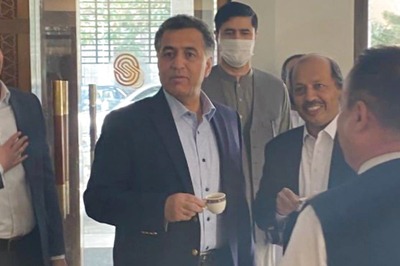
views
CHENNAI: It is a common belief that as one grows older, the normal control over their bladder and bowel movement will diminish over time. Though most physicians would advise you to ‘drink less water’ and stop worrying too hard, Urogynecologist Dr Karthik Gunasekaran disagrees with strong conviction. “Most people over 50 are probably suffering from incontinence but are aware that such a problem exists,” he says. To most people, the idea of incontinence would seem like a family secret, something that you rarely want to get out beyond the room with the bed-pans, but it is a prevalent problem in the city, adds Karthik. “About 40 to 70 per cent of the populace can be suffering, but don’t know what to do about it,” he reckons.To combat this social and physical problem, Karthik is all set to launch the Continence Support Group, India on August 20. It is a non-profit initiative that is looking to aid, treat, sensitise and teach people about the existence of continence. “After losing control of the urinary or bowel movements, people wait for anywhere between 3 to 7 years before deciding to get specialist help,” says one of the few urogynecologists in the state. “Thankfully, people are waking up to the reality that the social stigma of accepting that ‘you have an issue holding your excreta aside’ is a real problem and can be cured,” he adds. The launch will be done by director Gautham Vasudev Menon. “From hardly three patients per week in 2004, we have about 150 patients coming in a month. Truly the wheels are in motion,” he reveals. Incontinence is the result of damage of pelvic floor muscles that are commonly triggered by anything from old age and constipation to a normal vaginal delivery. Globally, it is estimated that over 50 per cent of women experience this issue at some point of time, but recover if age is on their side. When asked about the awareness level in Chennai, Karthik says, “There have been no studies in this field and hence there are no statistics to show people how common it is. This is a major problem that is preventing our awareness drive.” He hopes to change this with the initiative that will first begin with a publicity drive working through healthcare professionals (doctors), asking them to detect and refer. Then a free helpline will be set up and efforts will be made to have it declared a public health issue. “We are hoping that someday, the government includes it in their health insurance schemes so that more people can benefit,” he adds. The initiative will be part of the Guna Medical Foundation, run by the same doctor.



















Comments
0 comment